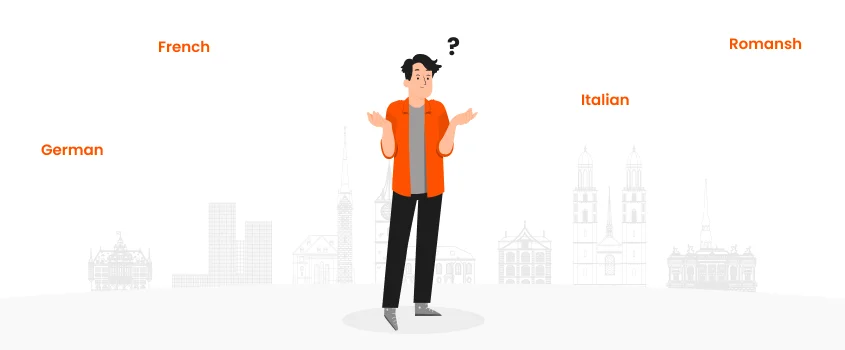2025 Offer Request a Quote Today and Grab a $50 Coupon for Free!
China and Japan are two significant countries in the world. China is making rapid progress in its economy whereas Japan is famous for making technological innovations. Therefore, the languages of both countries play a significant role in the global world. Are you curious to know the language similarities between Chinese and Japanese?
Before looking into the insight of Japanese vs Chinese, we need to look at China-Japan relations that they are sharing in trade, cultural exchanges, conflicts, and friendships. Japan has a very deep historical and cultural relationship that we can see in its architecture, cuisine, culture, religion, and philosophy. Moreover, it is depicted in their languages.
Both countries started trading in the 1860s. Many Chinese students learned Japanese and they used it against the imposing Qing dynasty in 1912. Many confrontations and wars took place between 1880 and 1945 when Japan tried to invade Manchuria, Taiwan, and the coastal region of China. At last, Japan was defeated and withdrew in 1945. Despite these wars, trade continued between the two countries. As a result, both countries commemorated the 50th anniversary of relations with zeal.
Whether you want to learn Chinese or Japanese, you must know what’s the difference between them. To your surprise, these both languages are similar. If you have to decide which language to learn between these two then it will be a hard decision to make. To make your decision easy, you must know the similarities between both languages. By knowing the similarities, you can even learn both languages.
China is a country with a large population. Therefore, lots of people speak Chinese. Approximately, 1117 million people speak Mandarin Chinese which shows there are billions of people that speak this language. This makes it the second most widely spoken language in the world after English. On the other hand, the Japanese population is not as large as compared to China. Around 130 million people speak the Japanese language making it the 9th most spoken language in the world.
It is quite a simple question. Of course, people living in China speak the Chinese language and people living in Japan speak the Japanese language. Due to the significance of both languages, neighboring counties of both countries also speak these languages. People living in Hong Kong, Singapore, Tibet, Taiwan, and Macau also speak the Chinese language. On the contrary, Japanese is the official language of Japan so people in Japan speak Japanese. In addition to it, communities residing in Brazil and United States also speak Japanese.
The one name that came to our mind when we hear about China is the Chinese language. People speak Chinese in different dialects. Mandarin and Cantonese are more common whereas Huizhou, Jin, ping Wu, Hakka, Min, Xiang, and Gan. The Chinese language originated from the Sinitic language family and Sino-Tibetan. Chinese is an ancient language and it has evolved with time. People write the Chinese language with Hanzi characters. However, they speak it in another form. The written and spoken Chinese language is changed with time.
People living in Japan spoke the Japanese language. This language is written with katakana, hiragana, and Kanji characters. The Japanese language is changed with time from its evolution since the 9th century. People can learn the Kana dialect easily whereas Kanji is difficult to learn. Many people think that the Japanese originated from the Chinese but it is not true. Japanese is a Japonic language. Its roots have a great impact on its writings. Its close geography and shared history are very close to Chinese but this does not mean that Japanese and Chinese are the same languages. However, there are some similarities between them. Let’s have a look at them
Both languages use different writing systems, Japanese uses the Kanji writing system and Chinese uses the Hanzi writing system. These two writing systems are similar and share 50% of the alphabet. Do you want to know why? This is because the Japanese language is younger than the Chinese language and it started with the Hanzi writing system before its writing system was developed. The interesting part is that the Japanese language has taken many loan words from the Chinese language to develop itself.
In China, people use name order. It means, that when they called anyone, they pronounce their first last name first. For example, if someone’s name is Summer. Chen then calls Chen Summer. People in Japan also follow the same custom because of the Chinese influence on the Japanese language. Although Japanese names are written in the Roman alphabet the practice of taking the last name first is a tradition in both countries.
Japanese and Chinese people give great importance to politeness and social hierarchy and it is also depicted in their languages. People in both countries called them with their designation instead of their name. One important thing to note is that their designation and title are not related to their marital status. However, it holds great importance in professional life. If you want to translate Japanese and Chinese to other languages then the context of the sentence matters a lot that is whether you are communicating in a formal scenario or an informal one. This factor plays an important role in getting a precise and accurate translation. For getting the business translation, you must inform the business expert about the target marketing translation or voiceover for video content.
These both are tonal languages which means that inflection of the tone gives different meanings. Chinese is the tonal language. The dialect of the Chinese language which is Mandarin contains four basic tones and a neutral tone whereas Cantonese has six different tones. On the contrary Japanese make pitch of two different levels of tones which is high and low. The number of tones and pitches varies between the two. The way that different words in both languages change their meanings with the tone is similar between both the languages. As English is not a tonal language so English speakers face great difficulty in learning Chinese and Japanese language.
In both of these languages, measuring words classify the number of people and objects. If you have to classify the number of glasses then the measuring word can identify the number of glasses. For instance, in English, you say lots of glasses but in Chinese, you have to say I have three [measure word] glasses. The Chinese language has around 150 words whereas the Japanese have 500 measure words.
The Japanese writing system uses Chinese script. It is called Kanji. Therefore, both languages are similar in their writing. The Chinese alphabets don’t represent the Japanese spoken language well so they include Katakana and hiragana. These two dialects complete the Japanese writing system. Apart from Kanji, Japanese uses three scripts Hiragana, Katakana, and Kanji. Generally, both Chinese and Japanese are written from left to right and top to right. At present, people write it from left to right.
Chinese and Japanese are the hardest languages to learn. This notion is not valid for language learners. Due to their love for language and sheer commitment, they can make their language learning venture easy. The Internet is full of language learning tools. So, you can select any of these languages. US Foreign Service Institute stated that Chinese and Japanese languages came under category V concerning the difficulty level. This shows that if an English speaker wants to gain proficiency in both these languages then they have to spend 2200 hours and 44 weeks of study.
Learning Japanese or Chinese depends upon your personal and professional goals. Both languages can increase the value of your CV. This is because China and Japan are important players in the global economy. Japanese is a little easy to learn whereas people speak Chinese widely. The passion and love for language can help in the selection of language and make your learning journey effective and enjoyable.
Don’t start learning both languages together because of their similarities. Although both languages share a lot of loan words and alphabets in their writings so if you start learning them together, it will create confusion in your mind. In addition to it, If you start learning two languages at a time then you can learn some parts twice the time and leave some important parts untouched. The best thing is to learn one language first and then go to the second one. If you are taking more time in learning any of these languages then meanwhile you can take the assistance of professional translation agencies. Because of the rapid growth of the Chinese language, people are learning the Chinese language more than Japanese. Governments of developing countries are offering their university students Chinese language courses. Which language will you learn?

A marriage certificate is a legal document that joins two people who want to live with each other, for the
Read more
A death certificate is a very essential document issued by a doctor, which certifies that the person is deceased. This
Read more
Romania is officially known as the Republic of Romania. It is located at the junction of Central-Eastern and South-Eastern Europe.
Read more
Switzerland is a landlocked country with a very interesting history. The culture and languages spoken in Switzerland are highly influenced
Read more
Many people really do not know what divorce is exactly. Divorce is the legal process of separating couples who have
Read more
If you have planned to drive for the first time, you will have to start with a learner’s permit. There
Read more
Bill of exchange is a way to communicate with others for resolving issues legally. It is a systematic way of
Read more
Making a will gives you an opportunity to declare the names of one or more persons; you want to manage
Read more
A divorce decree is basically a result of lengthy negotiations in addition to difficult decision making. It is a very
Read more

